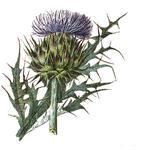Papers in the Biological Sciences

Svata M. Louda Publications
Document Type
Article
Date of this Version
2000
Abstract
The discovery and quantification of significant non-target ecological effects of Rhinocyllus conicus on native species in the northcentral USA provides the opportunity to experimentally evaluate factors that might help predict non-target host plant use, magnitude of direct impact with transference, and indirect effects mediated by trophic interactions. The relevance for biocontrol risk assessment of at least four important ecological relationships has emerged from these studies so far. These relationships include the role played in interaction outcome and ecological risk by: 1) ecological similarity of potential host plants, as well as phylogenetic distance; 2) synchrony of critical stages between insect and potential host plant(s), as well as acceptability; 3) population limiting processes of potential host plants; and, 4) overlap of feeding niche within the native guild of species dependent upon the host plants. In addition, this case makes it clear that host specificity and preference/performance criteria are necessary but insufficient to quantify potential ecological risk. In the selection of biocontrol agents, knowledge of the ecological relationships should help to quantify the risks inherent in deliberate introductions of new species.


Comments
Published in Proceedings of the X International Symposium on Biological Control of Weeds, 4-14 July 1999, Montana State University, Bozeman, Montana, USA. Neal R. Spencer [ed.]. pp. 551-567 (2000)